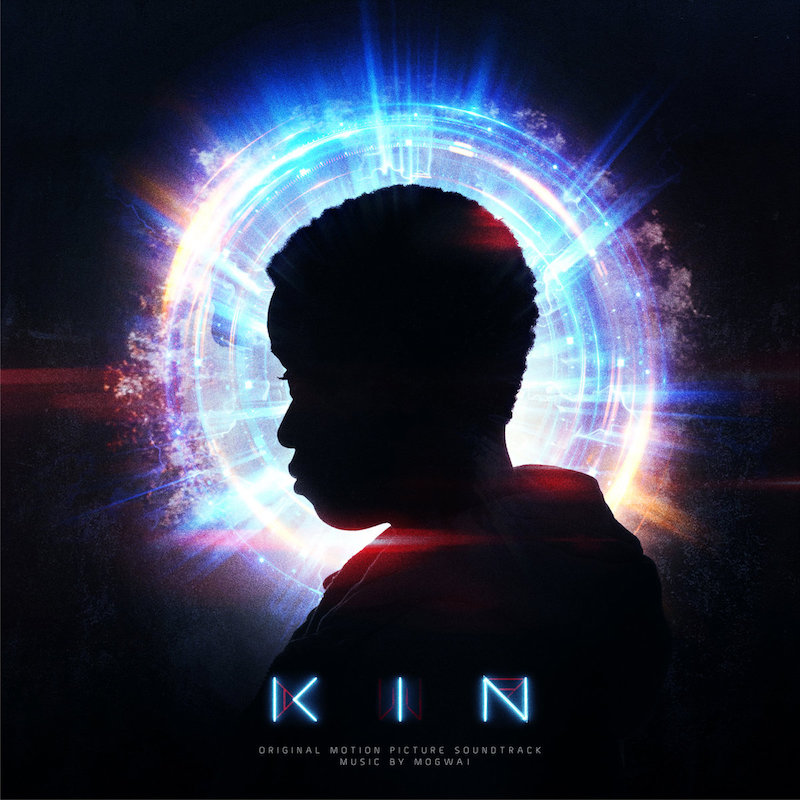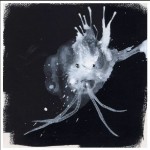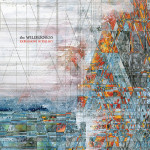Mogwai : KIN

Post-rock is a kind of alternative rock that demands you be willing to get, at times, comically emotional. After all, among its relatives in its family tree are the first two waves of emo, post-hardcore and soundtrack music, genres that cleave about as heavily to melodrama and aesthetic as any around. The frisson here leads to a natural desire for post-rock bands, or formerly post-rock, to score soundtracks. Godspeed You! Black Emperor had tracks snagged by Danny Boyle for 28 Days Later, Explosions in the Sky scored Friday Night Lights and Mogwai have more than done their time in the trenches on that front. KIN is their sixth soundtrack; comparatively, they have only nine LPs to their name, making their work as cinematic soundtracking artists almost as robust as their traditional musical output.
They’ve put in time on the front. While a composer like Hans Zimmer might lean a little bit too hard on the cornball cheese, performing aptly for something like Harry Potter or Batman (no knock meant to either), Mogwai have internalized a greater sense of tension and sonic texture over explicit melodicism. The melodic fixation is often the biggest shortcoming of soundtracks; by fixating so keenly on leitmotifs and general mood-fitting, they often ignore the notions of what make a piece of music compelling, and in so doing make music that often falls apart without its visual component. Mogwai have spent too long as a rock band and a pop band and an electronic band to make those kinds of errors; post-rock, good post-rock, is built on a firm understanding of certain fundamental aspects of songwriting, chords and the tensions they possess, resolutions and false resolutions and dissonances that carry weight, and Mogwai wield those concepts like sabers here. When you put on a record and close your eyes, the only film is in your head, and Mogwai are nothing if not practiced and accomplished artists at knowing how to conjure, sustain, and subtly shape this interior film.
The music on KIN is more piano-driven for its key melodic elements, abetted with eerie synths and electronic percussion for atmosphere. They’ve clearly heard Trent Reznor and Atticus Ross’ soundtrack work over the past few years; there’s a similar fixation on timbral tension here as on, say, The Girl With The Dragon Tattoo’s masterful soundtrack. And while this record won’t rank as high on all-time soundtracks as that one, it does manage to function as a moving record in its own right even without image. The songs here are subtle enough that it’s easy to imagine them playing harmony to the melody of moving image, but Mogwai pack enough textures and harmonies and melodies here in their own right that, were KIN never to be released, we’d be left with another class Mogwai record.
Is it Mogwai’s best? No; that still likely goes to Happy Songs for Happy People. Nor is it their best soundtrack; that is an even split between the epic-scale soundtrack for The Fountain and the eerie and heartbreaking one they recorded for Les Revenants. But in terms of a rich and melodramatic instrumental album, it’s hard to complain about the quality of the material on KIN, a record that, had it come out in their golden years in the ’90s and early 2000s, would rightly be talked about as one of their best. Mogwai’s hot streak from Hardcore Will Never Die, But You Will continues unbroken here.
Similar Albums:
 Mogwai – Atomic
Mogwai – Atomic
 Sigur Rós – Route One
Sigur Rós – Route One
 Explosions in the Sky – The Wilderness
Explosions in the Sky – The Wilderness
Langdon Hickman is listening to progressive rock and death metal. He currently resides in Virginia with his partner and their two pets.

